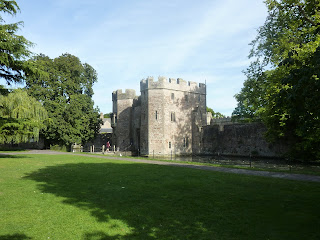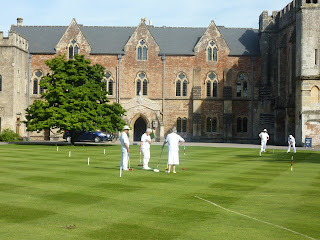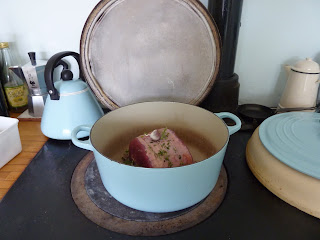and
a
Traditional English Sunday Roast.
 |
On Sunday, Manuel (my student), and I, enjoyed a traditional British Sunday Lunch
( enjoyed = past simple - used for an action that started and finished in the past).
We enjoyed it on Sunday
The past simple often ends in ...ed ( regular verbs)
We talked about our families
We laughed at a joke
However some verbs are irregular and do not end in .....ed
What did we eat?
( eat is an irregular verb)
We ate
roast beef with yorkshire puddings
roast potatoes and roast parsnips
cabbage, carrots and peas
horseradish sauce and gravy
I roasted some beef and yorkshire puddings
I roasted some potatoes and parsnips, with a little bit of cumin.
I boiled some vegetables
I made some gravy
( made is the past simple of 'make' - irregular verb)
I served it onto a dish
and took lots of photos
( took is the past simple of 'take' - irregular verb)
What did we drink ?
( drink is an irregular verb)
We drank some wine.
Drank is the past simple of 'drink'

What didn't we do?
We use did for past simple negatives and questions.
Did you cook chicken on Sunday?
No, I didn't, I cooked beef.
What did you do on Sunday?


















































